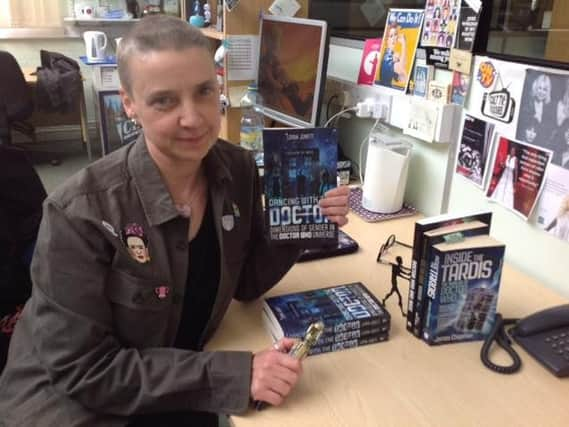Why Doctor Who could be Doctor Her in new book by expert at the University of Northampton


Dr Lorna Jowett, reader in television studies at the University of Northampton, has just published a new book looking at how women are portrayed in Doctor Who, and its spin-off series Torchwood and The Sarah Jane Adventures.
Lorna considers the showrunners, directors, producers and writers and the problems they have had in offering alternative gender models, as well as looking at the constructions of masculinity, the author function and how gender intersects with the other facets of identity, race, ethnicity and age.
Advertisement
Hide AdAdvertisement
Hide AdLorna said: “With the official announcement that actor Peter Capaldi, currently playing the renegade Time Lord in the rebooted series tenth season, is leaving the series, speculation is already running high about who might be cast as the next Doctor.
“In 2013, when Matt Smith prepared to bow out as the 11th Doctor, there were calls for more imagination in casting a new actor to play the role, rather than another white male. Capaldi’s casting only upped the ante for this new opportunity, especially coupled with criticisms of the series’ showrunner, Steven Moffat, for not employing more women writers and directors.
“All of these areas - characters, stories, casting, writing, directing and showrunning—as well as press, viewer and fan responses to all three series are covered in the new book, from an admittedly feminist viewpoint.
“I was persuaded to write this book after giving a keynote lecture on female companions in the new ‘Doctor Who’ at the 50th anniversary academic conference in 2013. Philippa Brewster from publisher I B Tauris was in the audience, and, seeing the way both male and female academics reacted to my paper, realised this was a perspective that still had a lot of potential.
“I’m fairly certain this latest book won’t be popular with everyone, but I don’t mind if it shakes things up a little.”